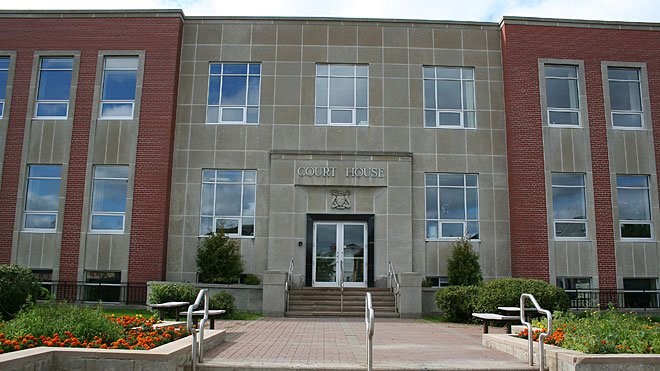Plans to make Sudbury the permanent weekend court for Northern Ontario could cost local police more than $100,000 extra next year.
Greater Sudbury Police Insp. Mike Chapman told members of the police services board that costs for the WASH (Weekend and Statutory Holiday) were already increasing significantly this year, as they expand the service.
The weekend court process allows people who have been arrested on less serious charges on a Friday or Saturday to make their way through the process and be released even though the full court isn't operating.
"In 2014 it cost us about $34,000 to do WASH court,” Chapman said. “On a good note, we have released 79 individuals, locally, this year on the weekend that otherwise would have had to spend the weekend in jail."
In addition to benefiting people who have been charged, it also improves the speed of the justice system by easing the caseload for regular bail court when it opens on Monday.
But the force doesn't get provincial funding for the court, and police must absorb the costs.
“In 2015, we moved to a process where we're allowing duty counsel in,” Chapman said. “So there's more time associated with that (and) costs went up slightly, about $9,000 projected annually.”
The big hit could come next year when the weekend bail court becomes permanent, increasing costs by another $67,000. And because Sudbury's WASH courts operated so well, the province wants the city to become the main site for Northern Ontario. That would mean the local justice of the peace would hear cases from the Sault, North Bay and Timmins through video link.
"We believe that, if we are the full-time host, we're going to have to move the whole process to the courthouse,” Chapman said. “That would increase staffing costs, because we would have to have people to monitor the prisoners. That would cost us in excess of $100,000 … a 200 per cent increase in two years."
“We've submitted a letter kind of resisting that -- as has the local regional Crown. Because it has some financial impact for them, as well as some staffing issues."
Instead, Sudbury police would prefer WASH court to rotate between the four communities, each taking turns as host.
Police Board chair Gerry Lougheed Jr. wondered whether clients could be charged a user fee to take advantage of weekend court, similar to the way they city charges more to dig a grave on weekends, or plumbers charge more to answer a call on Saturdays.
"Do we have the option to charge these people a user fee?” Lougheed asked. “Where they know if they pay a user fee, they can get out on a Saturday, or if I don't pay the fee, I have to wait until Monday?"
Chief Paul Pedersen said the cases aren't quite comparable, since they were talking about the criminal justice system.
"The judicial process in this province has never been predicated on a user fee,” Pedersen said. "If you listen to the other argument, the rights of an individual arrested on a Friday afternoon at 4 are best served if they are able to make bail on a Saturday morning ... So that would be a very difficult rock to push up the mountain."
However he agreed local police are increasingly forced to absorb downloaded responsibilities without funding to pay for them. For example, a lack of mental-health services means people struggling with those issues eventually encounter police.
When the province stopped handling bear calls, the responsibility to respond fell on local police forces.
"The question always is, who pays?" Pedersen said. "As much as 40 per cent of our budget ends up being directly related to costs associated with the judicial system. Whether it's increased disclosure because of cameras or whatever we're talking about, the board chair is very astute in saying that we can't just keep sitting back and accepting the fact that we have to accept that.
"This is the discussion we're trying to have at a provincial level, about costs that end up being absorbed by municipalities. We can carry on that conversation about all levels of service that end up defaulting down to us as police services. That's the 85 per cent of the work we do."
Join Sudbury.com+
- Messages
- Post a Listing
- Your Listings
- Your Profile
- Your Subscriptions
- Your Likes
- Your Business
- Support Local News
- Payment History
Sudbury.com+ members
Already a +member?
Not a +member?
Sign up for a Sudbury.com+ account for instant access to upcoming contests, local offers, auctions and so much more.



